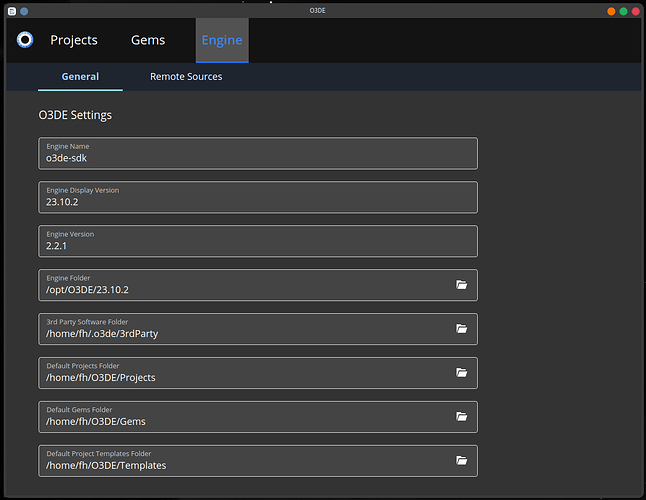The Python error is easily enough fixed right now by simply installing 3.10. Yes, I know that needs handled better, but I’m not at that point yet, rather, I’m still in the phase of gathering what all needs to be done to get it working. I do apologize for not making that explicit in my initial post.
If you install Python 3.10, it handles the Python installation part just fine, and that’s when the Qt error pops up, that previous discussion has concluded is the runpath issue.
I am that upstream developer…and it doesn’t work. That’s why I’m asking here. If it was as simple as a Python version issue, I’d be talking to the rest of the O3DE team about upgrading the Python dependency. (I wish it were that simple, and maybe the fix still is, but it’s at least proving to be a little harder to track down.)
I don’t know that I’d call it a wild goose chase, at least not for myself, when I’m currently just investigating and verifying the conclusion my predecessors came to after running into the same error, and compiling a list of what needs fixed in order to make it work. That said, it might very well be one on the packager’s part, as it looks like the Qt error could indeed be a red herring.
I mean…I already knew that, but neither Qt nor whatever part handles runpath are AUR. I’m doing the upstream support for the AUR package, I’m asking for help about an error that seems to be originating from an official package, and attempting to verify the conclusion of those downstream of me.
As I’m not a package maintainer at the OS level, I came here hoping to be able to defer to those who are, for some high-level information on whether there is or isn’t some quirk we’re running into, so that I can more specifically pinpoint what’s actually wrong and what I need to fix, which the responses here have helped with already, so thank you for those.
Because a user of vanilla Arch within the O3DE developer community had already confirmed that it worked for them, and all of the existing reports of it not working are coming from Manjaro users. I know the Manjaro team makes it clear that it’s not identical to Arch, so it made sense to me to start here, and see if this might be a point where it differs for some reason that I’m unaware of. Since the matter doesn’t seem to be that straightforward, trying EOS and double checking will be among my next steps.
As I mentioned, I’m an upstream application dev, not a package maintainer, so I’m not familiar with the best practices on that front. Is the approach the package maintainers used the usual way of handling applications that don’t officially support a given distro? I would assume compiling a package targeted to Arch is the most ideal way, but is there a middle ground at all that might be preferred to the method they chose? Downloading the source and compiling it on the user’s machine isn’t really desired in this case, I don’t think, because the raw source is significantly larger still, due to the nature of the application, but perhaps a different approach might work for them.
